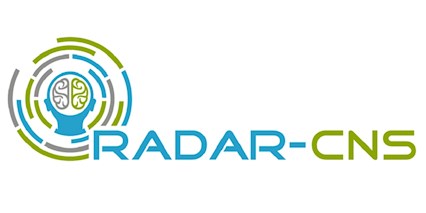
About the presenters
Professor Matthew Hotopf CBE
Matthew is Director of the NIHR Maudsley BRC and Professor of General Hospital Psychiatry at the Institute of Psychiatry, Psychology and Neuroscience, King’s College London.
He is principal investigator of the Innovative Medicine Initiative grant – RADAR-CNS (Remote Assessment of Disease and Relapse for Central Nervous System Disorders) which includes five major pharmaceutical companies, Intel and Software AG, as well as SMEs and numerous academic partners across Europe. He is mental health lead for UK Biobank and leads on the linkage of GEL data with psychiatric medical records in our work within the Neurodevelopmental domain of the Paediatric Disorders Genomics England Clinical Interpretation Partnership.
Dr Faith Matcham
Faith is a post-doctoral research associate in the department of psychological medicine at King’s College London. She coordinates the clinical study in major depressive disorder, examining the use of remote measurement technologies to predict outcomes in people with a history of depression. She also is a member of the management team, supporting the overall management and conduct of RADAR-CNS.
Faith has a PhD in psychological medicine, and is a chartered psychologist specialising in health psychology. Her previous work has focused on the relationship between mental and physical health, with her PhD examining the association between depression and disease outcomes in people with rheumatoid arthritis. She has also worked in the field of service development, using web-based screening systems to improve the measurement and management of depression and anxiety within the context of general hospital outpatient services.
Dr Amos Folarin
Amos is the Software Development Group Lead at the NIHR Maudsley Biomedical Research Centre at South London and Maudsley NHS Foundation Trust and King’s College London. He oversees the development of a number of innovative clinical and research applications platforms such as RADAR-base http://github.com/RADAR-base, CogStack https://github.com/CogStack/.
Amos qualified as a PhD in Bioinformatics at University College London and has since worked as a bioinformatician and software developer over the last 15 years (at Inpharmatica, Birkbeck, UCL, King’s College London and South London and Maudsley NHS Foundation Trust).
His interests are focussed on the possibility of using prospective and retrospective time series data sources such as in mHealth and clinical informatics/EHRs, and how these can be woven together to provide a detailed digital view of disease state. Current work includes developing the RADAR-CNS data collection platform (RADAR-base) for remote patient monitoring using wearable devices, mobile phone sensors and mobile apps; utilising unstructured data in clinical records e.g. for monitoring seasonal infectious diseases and image analysis pipelines for high-content drug screening.
Dr Nicholas Cummins
Nicholas (Nick) Cummins is a lecturer in AI for speech analysis for health at the Department of Biostatistics and Health Informatics at King’s College London. Nick’s current research interests include speech processing, affective computing and multisensory signal analysis. He is fascinated by the application of machine learning techniques to improve our understanding of different health conditions and mental health disorders in particular. Nick is actively involved in RADAR-CNS project in which he assists in the management of Work Package 8: Data Analysis & Biosignatures.
Nick was awarded his PhD in electrical engineering from UNSW Australia in February 2016 for his thesis ‘Automatic assessment of depression from speech: paralinguistic analysis, modelling and machine learning’. After completing his PhD, he was a postdoctoral researcher at the Chair of Complex and Intelligent Systems at the University of Passau, Germany. Most recently, he was a habilitation candidate at the Chair of Embedded Intelligence for Health Care and Wellbeing at the University of Augsburg, also in Germany. During his time in Germany, he was involved in the DE-ENIGMA, RADAR-CNS, TAPAS and sustAGE Horizon 2020 projects. He also wrote and delivered courses in speech pathology, deep learning and intelligent signal analysis in medicine.
.
About RADAR-CNS
Remote Assessment of Disease and Relapse in Central Nervous System Disorders (RADAR-CNS) is a major international research project. It aims to develop new ways of measuring major depressive disorder, epilepsy and multiple sclerosis (MS) using wearable devices and smartphone technology.
RADAR-CNS aims to improve people’s quality of life and change how depression, epilepsy and MS are managed and treated. Data from mobile devices can give a full picture of a person’s condition at a level of detail which was previously impossible. This offers the potential to detect changes in behaviour, sleep, or mood before the individual themselves is aware of it. This could help them to predict – or even avoid – a relapse.
RADAR-CNS brings together clinicians, researchers, engineers, computer scientists and bioinformaticians from all over the world. It is jointly led by King’s College London and Janssen Pharmaceutica NV. The project is funded by the Innovative Medicines Initiative -- a Public Private Partnership set up between the European Federation of Pharmaceutical Industries and Associations (EFPIA) and the European Union). It includes 23 organisations from across Europe and the US.
Visit the RADAR-CNS website, www.radar-cns.org Follow them on Twitter @RADARCNS. Subscribe to our newsletter: www.radar-cns.org/subscribe-our-newsletter





